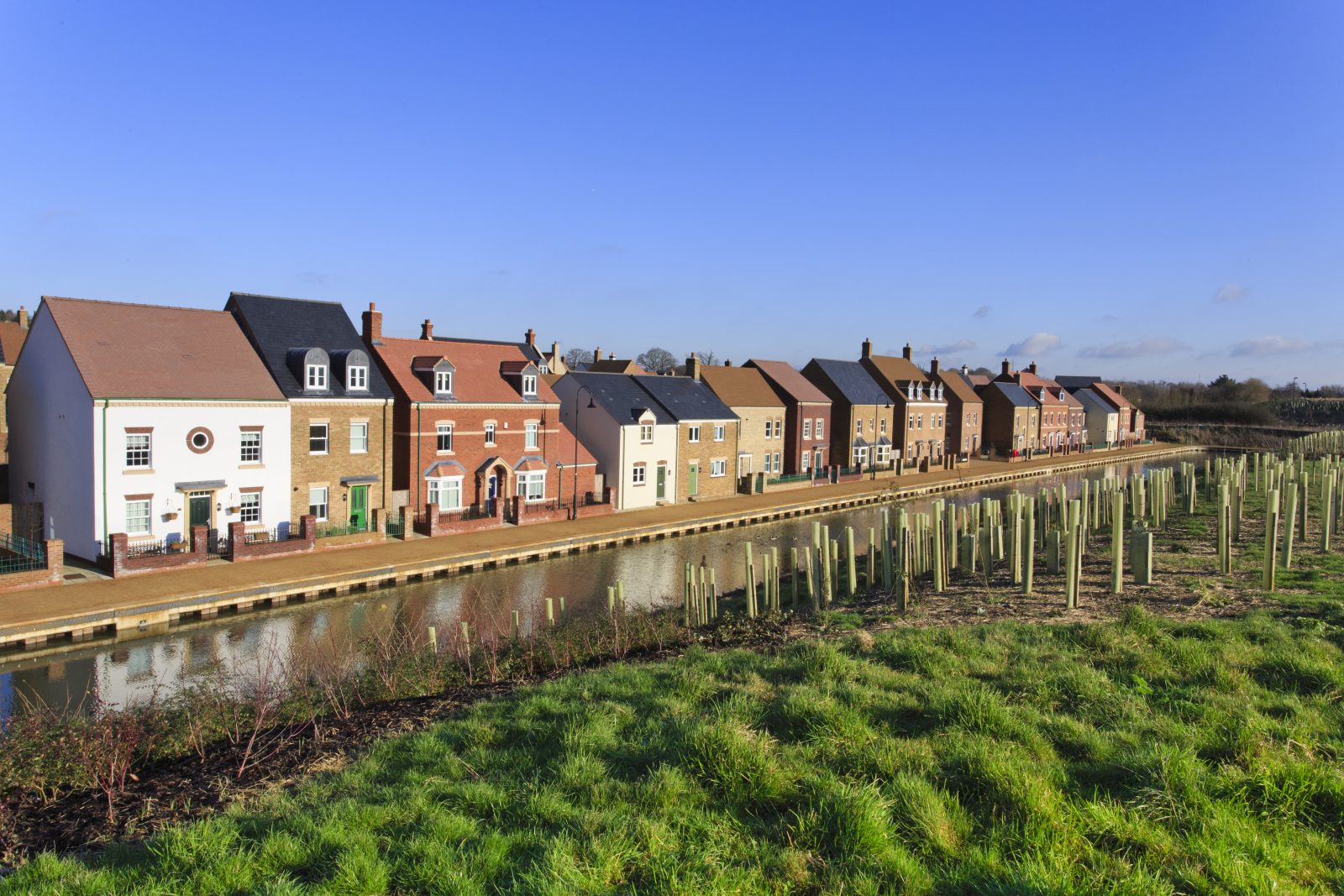Housing secretary Michael Gove has outlined an end to rules on ‘nutrient neutrality’ for housebuilding, which stop new developments being built if they lead to higher levels of phosphates and nitrates in waterways (see Explainer: What is ‘nutrient neutrality’ and why are nutrients stopping housebuilding?).
The Guardian reported yesterday (28 August) that the rule, which only applies in England, will be changed through an amendment to the Levelling Up and Regeneration Bill. It will be accompanied by £400 million in grants to farmers and water companies to reduce leaks into rivers, estuaries and wetlands.
Another £300 million will be earmarked for mitigation efforts where housing schemes increase levels of water pollution in an apparent effort to alleviate fears over water quality.
Advertisement
A spokesperson for Gove said more than 100,000 homes would be unlocked as a result of removing the legislation, which the government says is a hangover from EU membership.
Since the law came into effect in 2019, the Home Builders Federation (HBF) estimates that more than 41,000 houses have been blocked each year, meaning the number of paused homes could be as high as 145,000.
Developers, housebuilders and architects in more than 70 local authorities have since been forced to provide evidence that new housing schemes will not increase levels of phosphates and nitrates into nearby waterways.
It remains unclear, however, whether the Levelling Up bill will pass the Lords before the end of the current parliamentary term. The king is set to outline legislation for the following parliamentary year on 7 November.
Other changes to house-building and planning in the bill include updates to the National Planning Policy Framework (NPPF), a focus on ‘building beautiful’, and the removal of five-year housing targets.
Advertisement
Gove said in a statement: ‘We are committed to building the homes this country needs and to enhancing our environment. The way EU rules have been applied has held us back. These changes will provide a multi-billion pound boost for the UK economy and see us build more than 100,000 new homes.
‘Protecting the environment is paramount, which is why the measures we’re announcing today will allow us to go further to protect and restore our precious waterways while still building the much-needed homes this country needs.
‘We will work closely with environmental agencies and councils as we deliver these changes.’
In January 2022, the UK's Environmental Advisory Committee (EAC) found that only 14 per cent of rivers were in ‘good’ ecological condition. The rest are subject to chemical, agricultural and road pollution, among other sources.
Comments
Peter Drummond, chair of practice at RIAS
It has been a mantra of Westminster, notably in relation to fire safety issues, that 'polluter pays'. None of us would, I think, dispute that premise. The natural consequence is that developers, contractors, and others who deliver compliant schemes are incentivised for doing so and therefore flourish. In contrast those who are perhaps less scrupulous rightly labour under additional costs by way of enforcement action, delays, and so on.
Against that backdrop it is not unreasonable to expect housebuilders ensuring that their developments address environmental issues such as flooding or, in this case, pollution. It would be inappropriate for developers to maximise their profits whilst leaving the taxpayer to meet, even in part, such burdens. Developers already benefit from measures such as zero-rating for new build, in stark contrast to those who seek to retrofit existing properties.
It is therefore difficult to see why, beyond political expedience, they should be handed what appears to be yet another gift on a plate.
Ritchie Clapson, co-founder of propertyCEO
The majority of local planning authorities that were affected by the nutrient issue had no real idea or plan on how to deal with it and so we were left in limbo, with a blanket freeze on approval of any new planning applications. While I accept the environmental issues we have with our rivers, housing development contributes only part of the problem and it’s good to see that the government is also committing to invest in other solutions.
The government has regularly promoted the redevelopment of brownfield land where we have the opportunity to develop hundreds of thousands of homes from existing unused buildings. The sewage discharge infrastructure for these empty properties already exists, and from an environmental perspective we should certainly prioritise their conversion. For property developers, a simple tax payment on any new housing with the monies collected directed to the investment in water treatment plants seems to be a far simpler and workable approach – a simple two-tier tax system with one level for conversion of brownfield land and another for new build could solve the problem.
Ultimately, we need to protect our environment and build new homes for people to live in. These goals cannot be mutually exclusive and it’s down to government to plot a workable path that allows us to do both. Hopefully these new measures will achieve this.
FT (£) “The Home Builders Federation claimed “nutrient neutrality” rules cut housing supply by 41,000 homes a year.” Will 41,000 more home spring up in 2024 as a direct consequence of the rule being scrapped? Of course not. https://t.co/ziaTHlbqK1
— Peter Bill (@peterproperty) August 29, 2023
 The Architects’ Journal Architecture News & Buildings
The Architects’ Journal Architecture News & Buildings

Leave a comment
or a new account to join the discussion.